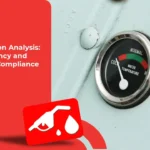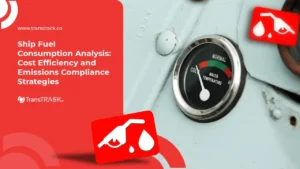Effective Tips to Overcome Windshield Condensation for Safe Driving
Posted on October 31, 2024 by Nur Wachda Mihmidati

Windshield condensation is a common problem that drivers often face, especially during cold or rainy weather. Dew covering the glass can reduce visibility, impair comfort, and increase the risk of accidents. For drivers who often drive in these conditions, understanding the causes and ways to prevent dewy glass is essential to maintaining road safety. This article TransTRACK will discuss the causes of foggy glass and various effective solutions that you can apply.
Causes of Windshield Condensation
A dewy car windshield occurs due to a condensation process, where water vapor in the air settles on the surface of the glass. This condition is caused by several factors related to the difference in temperature and humidity inside and outside the car. Here are some common causes of car windshield fogging:
Windshield Condensation Due to Extreme Temperature Differences
The temperature difference between the inside and outside of the car is the main cause of glass fogging. When the warm air inside the car touches the cooler glass (due to the lower outside temperature), the water vapor inside the car condenses and turns into water droplets on the glass. This often happens in the morning, in rainy weather, or when driving in cold areas.
Windshield Condensation due to Air Humidity in the Car
Humid air in a car can come from several sources, such as:
- Passenger Breathing: The air produced from breathing has a high water vapor content, especially when the car is full of passengers.
- Wet Clothes or Damp Items: Carrying wet items such as umbrellas or rain-soaked clothes can also increase the humidity in the car.
- Damp Air from Outside: Damp air from the outside environment can enter the car, especially if the windows are slightly open or the air circulation system uses outside air.
Windshield Condensation due to Poor Air Circulation
Prolonged use of the internal air circulation mode can trap moist air inside the cabin. This accelerates dew formation, especially if there is no fresh airflow coming in to reduce the moisture content.
Windshield Condensation due to Suboptimal Air Conditioning or Heating System
An air conditioning system (AC) or defogger that is not working properly can also be a cause of dewy glass. If the air conditioner or defogger cannot lower the humidity quickly enough, dew will continue to form on the glass, especially in humid or rainy conditions.
Windshield Condensation due to Leaks in the Cooling System or Car Doors
Small leaks in the seals of car doors or windows can also allow moist air to enter the cabin. This will increase the humidity levels in the car and trigger condensation on the glass. Leaks can also come from the air conditioning system which may not be working properly or there are leaks in the coolant lines.
Windshield Condensation due to Differences in External Weather Conditions
Extreme weather such as heavy rain, dense fog, or extremely cold weather causes the outside air to become very humid or cold. This increases the risk of dew as the air inside the car tends to be warmer and more humid than the air outside.
Windshield Condensation due to Dust and Dirt on Glass
Dirty glass, especially if there is a layer of dust, oil, or other residue, tends to collect dew more easily. Dirt on the surface of the glass attracts more water vapor to condense, so the glass condenses faster.
Windshield Condensation due to Incorrect Ventilation Setup
Improper ventilation settings, such as completely closing the outside air ducts or directing warm air vents directly onto the glass, can lead to dew formation. Poor fresh air circulation will retain moisture in the cabin and cause dew to form faster on the glass.
Tips to Prevent Car Windshield Dew
A dewy car windshield can impair visibility and jeopardize safety. To prevent this from happening, here are some practical steps you can take:
Turn on the AC and Defogger
Using the AC is the most effective way to reduce humidity in the cabin. The AC will draw the moist air out, helping to prevent dew from forming. Front and rear windshield defoggers can also help warm up the glass so that the dew disappears quickly.
Activate External Air Circulation
Make sure the air circulation mode is in the “outside air” position so that the moisture inside the car is not trapped. Good air circulation keeps the temperature and humidity in the car balanced.
Lower the Window Slightly
If weather conditions permit, lower the windows slightly to balance the temperature inside the cabin with the outside air. This helps reduce the temperature difference that causes dew.
Use a Microfiber Cloth
Prepare a microfiber cloth to clean the dew that has formed. This cloth is very effective as it absorbs water without leaving streaks on the glass.
Apply Anti-Dew Product
Apply an anti-dew product to the windshield. This product forms a protective layer that prevents water vapor from settling on the glass surface, which is especially helpful in humid or rainy conditions.
Check and Clean the AC Filter
A dirty AC filter can reduce the efficiency of the cooling system in removing moisture. Make sure the AC filter is always clean and replaced regularly.
Keep Car Glass Clean
A clean windshield will reduce the chances of dew forming. Dust and dirt on the glass surface can provide a place for moisture to settle, so make sure your windshield is always clean.
By following the tips above, you can prevent windshield fogging and ensure better visibility while driving.
As a driver, maintaining visibility is paramount for road safety. A dewy windshield can obstruct your view and increase the risk of accidents, especially during bad weather. By implementing simple steps to prevent dew, you can drive more comfortably and safely.
For a more advanced solution, TransTRACK comes with Driver Monitoring System which is able to monitor the driver’s environmental conditions in real-time. With this technology, you can ensure visibility remains optimal, making the trip safer and more efficient. Improve your driving safety and comfort with TransTRACK!
Topic :
Recommended Articles

 Bahasa Indonesia
Bahasa Indonesia








